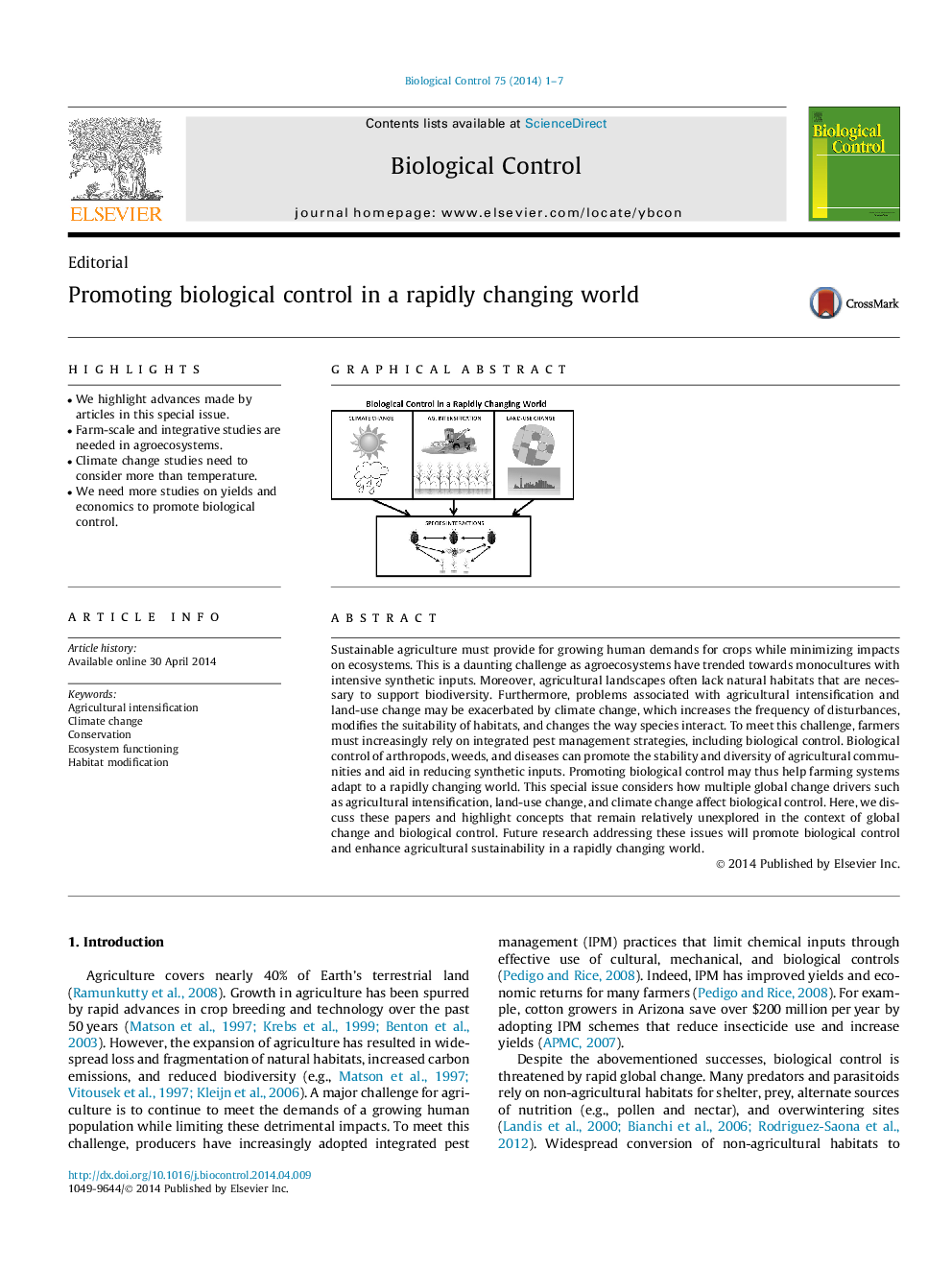| Article ID | Journal | Published Year | Pages | File Type |
|---|---|---|---|---|
| 4503897 | Biological Control | 2014 | 7 Pages |
•We highlight advances made by articles in this special issue.•Farm-scale and integrative studies are needed in agroecosystems.•Climate change studies need to consider more than temperature.•We need more studies on yields and economics to promote biological control.
Sustainable agriculture must provide for growing human demands for crops while minimizing impacts on ecosystems. This is a daunting challenge as agroecosystems have trended towards monocultures with intensive synthetic inputs. Moreover, agricultural landscapes often lack natural habitats that are necessary to support biodiversity. Furthermore, problems associated with agricultural intensification and land-use change may be exacerbated by climate change, which increases the frequency of disturbances, modifies the suitability of habitats, and changes the way species interact. To meet this challenge, farmers must increasingly rely on integrated pest management strategies, including biological control. Biological control of arthropods, weeds, and diseases can promote the stability and diversity of agricultural communities and aid in reducing synthetic inputs. Promoting biological control may thus help farming systems adapt to a rapidly changing world. This special issue considers how multiple global change drivers such as agricultural intensification, land-use change, and climate change affect biological control. Here, we discuss these papers and highlight concepts that remain relatively unexplored in the context of global change and biological control. Future research addressing these issues will promote biological control and enhance agricultural sustainability in a rapidly changing world.
Graphical abstractFigure optionsDownload full-size imageDownload as PowerPoint slide
